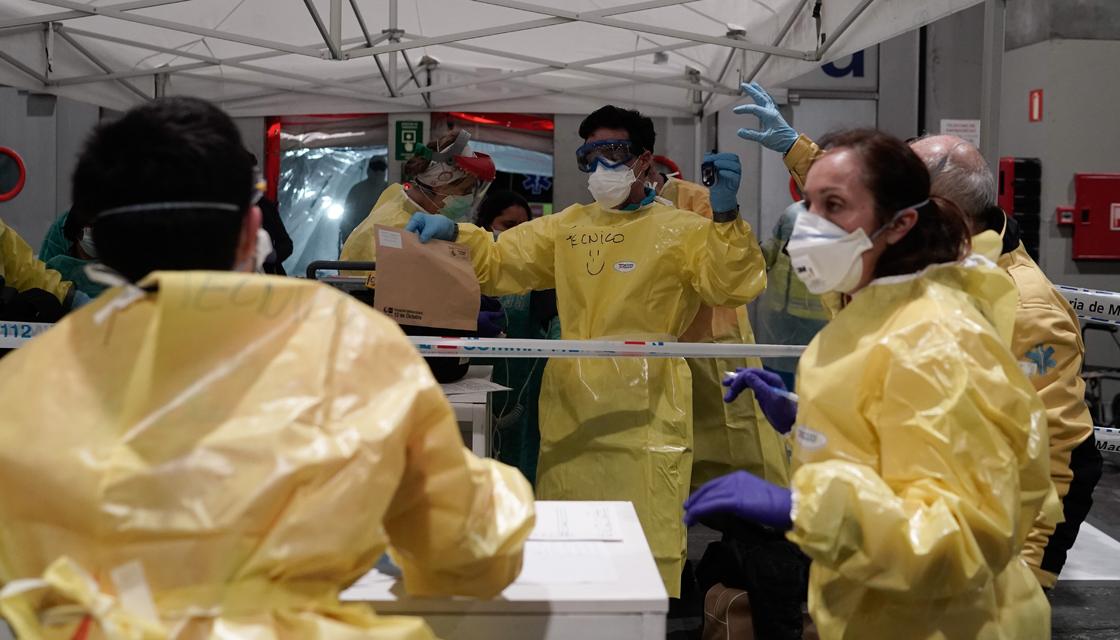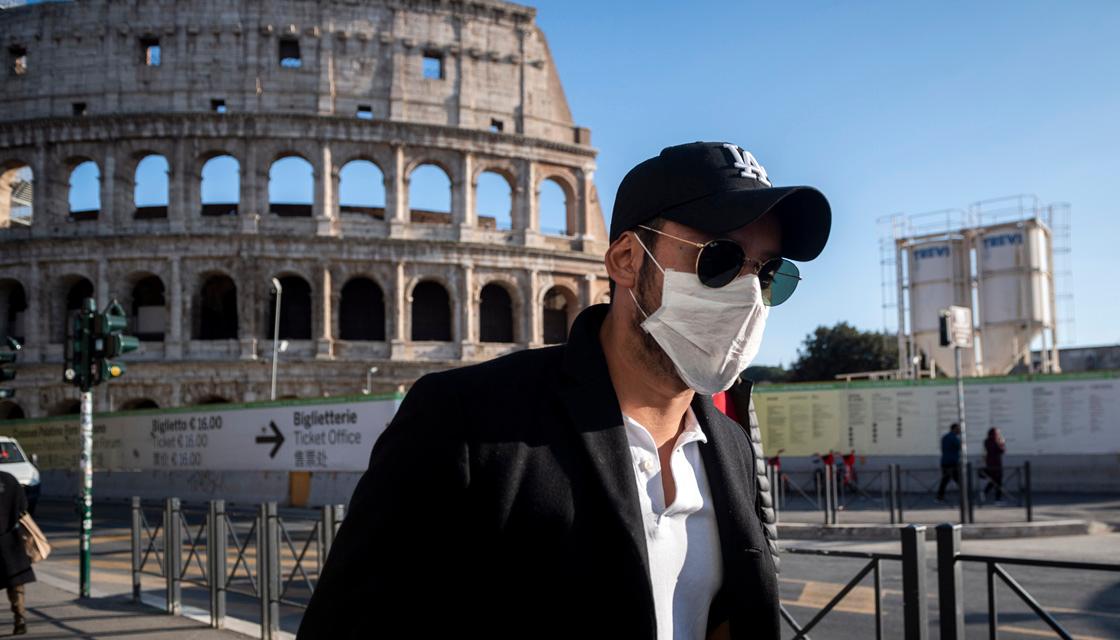Viral social media posts and some tabloid media outlets have purported that the novel coronavirus (COVID-19) has mutated and is causing a range of new symptoms.
The posts, some of which have been marked as false by Facebook's fake news filter, provide a full list of 'expanded' symptoms of the disease beyond those issued by the World Health Organisation such as fever, dry coughing and tiredness.
The 'additional symptoms' mentioned on one Facebook post include nausea, diarrhoea, abdominal pain, body aches and loss of appetite.
Some posts also give tips on how to carry out tests (holding one's breath for 10 seconds) and undergo treatments (taking high doses of Vitamin C) that have since been debunked.

But while much of the content in these posts is plain false, is the claim that coronavirus has mutated accurate? Well, yes it has - but here's why that's not as bad as it sounds.
Why mutations aren't necessarily a bad thing
Last week, Icelandic scientists published a study explaining that they had discovered 40 mutations of COVID-19 already, triggering mild terror in any poor soul unfortunate enough to pick up a tabloid newspaper that day.
But the truth is there's not anything remotely unexpected in that study, which is yet to be peer-reviewed, because for viruses it's just a normal part of life.
Indeed, a mutation was how COVID-19 found itself able to make the jump from what scientists now believe was pangolins and bats to humans in the first place.
Viruses, thanks to their incredibly high rate of reproduction, mutate a lot - much more frequently than other microorganisms. In the case of COVID-19, RNA is used as the virus's genetic material rather than DNA, which makes its rate of reproduction even faster.
- Ministry of Health confirms 76 new COVID-19 cases in New Zealand
- First New Zealand death recorded
- How to shop safely on digital marketplaces during the COVID-19 lockdown
- Too many' motorists ignoring the lockdown rules, sergeant says
Even so, this doesn't make viruses more dangerous than fungi or bacteria. It just means that the disease changes more quickly - for better and for worse.
"The rate at which this virus is mutating or evolving is not unexpected," Dr Nathan Grubaugh, a virologist at the Yale School of Public Health, told Popular Science.
"It’s exactly what we would expect for a virus like this. All viruses continuously evolve and there shouldn’t be anything alarming about the process in general."
Have these mutations created new symptoms?
The symptoms mentioned in the Facebook post - stomach aches, loss of appetite, diarrhoea and the like - are legitimate COVID-19 symptoms, but not a result of mutations.
These symptoms are also not new. They were reported early on in the global coronavirus outbreak, and don't appear to have come as a result of mutating genes.

The reason you're probably not familiar with them is because they only afflict a very small number of the people who contract coronavirus, according to data published by Chinese health officials last month.
The data shows diarrhoea was only a symptom for less than one in every 25 cases of COVID-19, while nausea and vomiting affected just one in 20 and body aches one in seven.
Should we worry about COVID-19 mutating?
While we should never rule anything out, experts believe it's unlikely coronavirus will mutate into something worse.
"The odds of the virus mutating in such a way that it actually becomes more lethal or contagious over the timescale of weeks, months, or even a couple years aren't very high," Dr Grubaugh told Popular Science.
The reason for this is related to COVID-19's pace of reproduction which, while part of what has made the virus so dangerous to date, may also prove to be its eventual downfall.
Because viruses reproduce quickly, it means that when it mutates something in error - in turn weakening itself - it is unable to react in time to correct the error before reproducing it in other cells.
Could COVID-19 just wipe itself out?
Perhaps, but this too is unlikely.
In a recent piece for scientific journal Nature Microbiology, Dr Grubaugh says the mythology of mutations in superhero narratives is partly to blame for us assuming one small change in our genetic code could make a drastic change.
"That's just not the way that evolution works. We all have mutations. We all are genetically different from our ancestors," he said.
The reality is that many mutations are required to alter the deadliness or infectiousness of a disease - and this process can take many years, rather than the weeks or months that we'd need to stop it before the world hits peak infection.
Our best chance of beating coronavirus remains with vaccines - which while progressing quickly, are still more than a year away, according to the University of Otago's Professor David Murdoch.
"If we've got an effective vaccine, if it's a safe one, if we've done all the clinical trials - and then ramping up production and all the regulatory issues - [12 to 18 months] is the timeframe," he told The AM Show last week.
"So we've got to do a lot of work before then to get on top of it."
That work - stopping the transmission of COVID-19 - is reliant on stringent self-isolation measures such as lockdowns and by practising good hygiene.
So, until we have a more permanent solution, it's as simple as staying two metres away from others and washing your hands.





